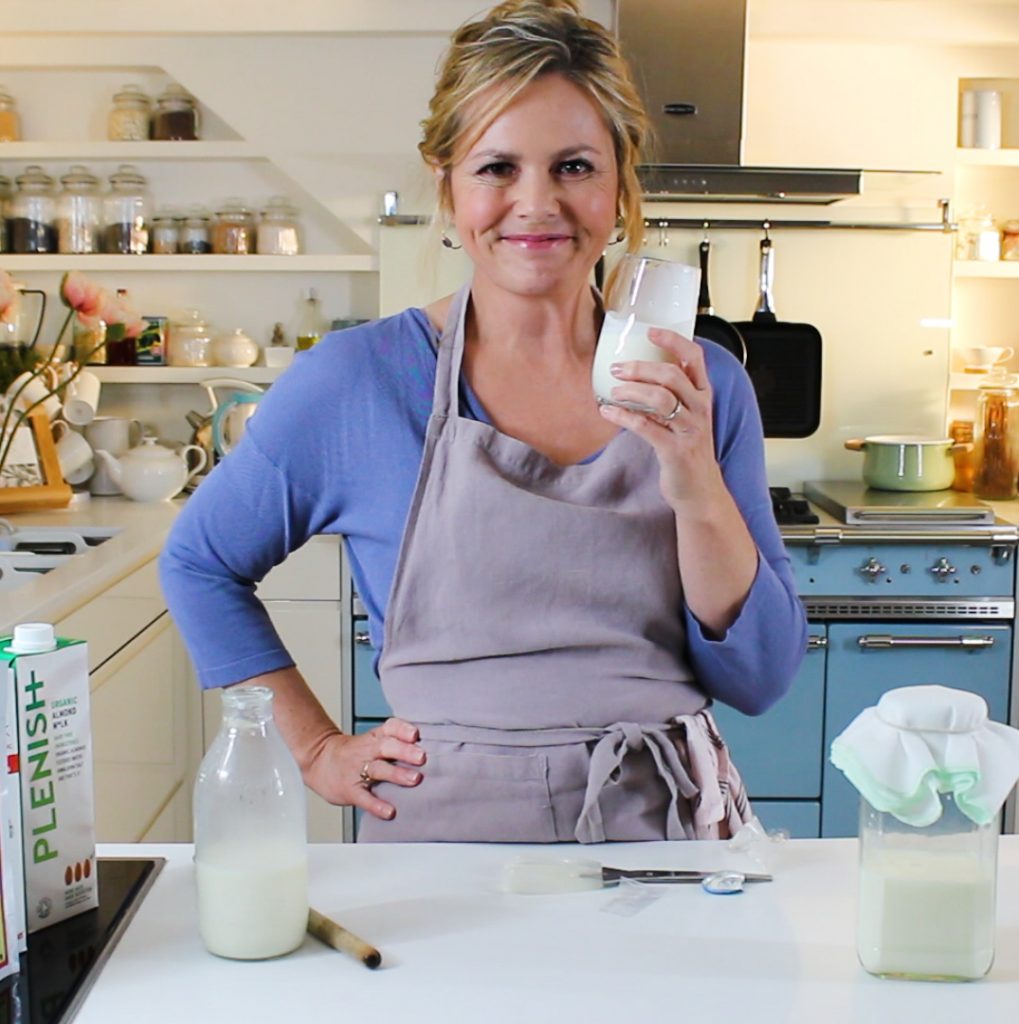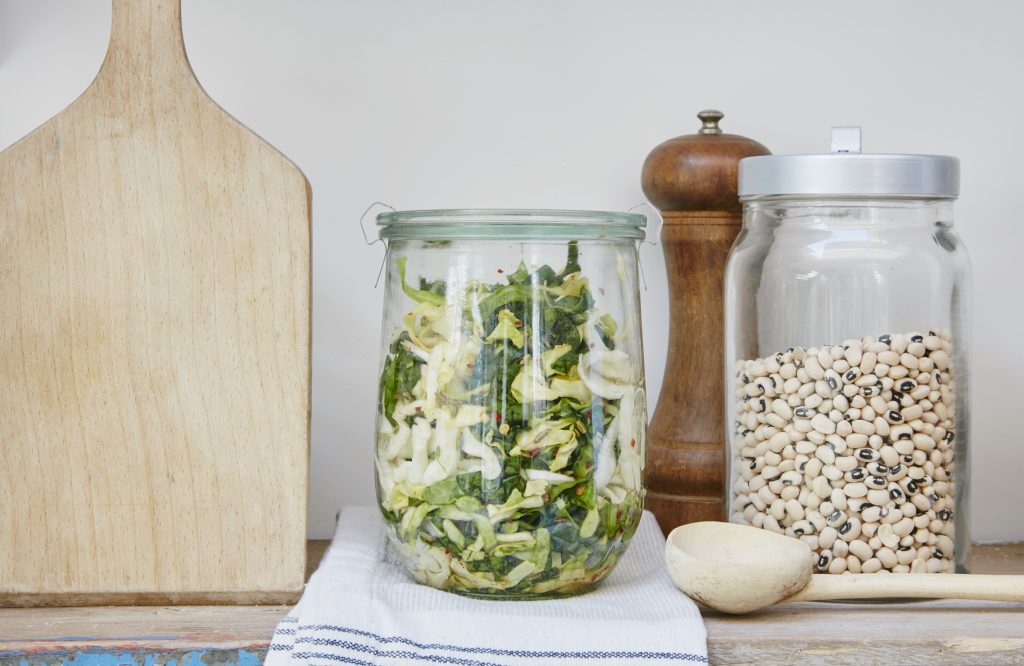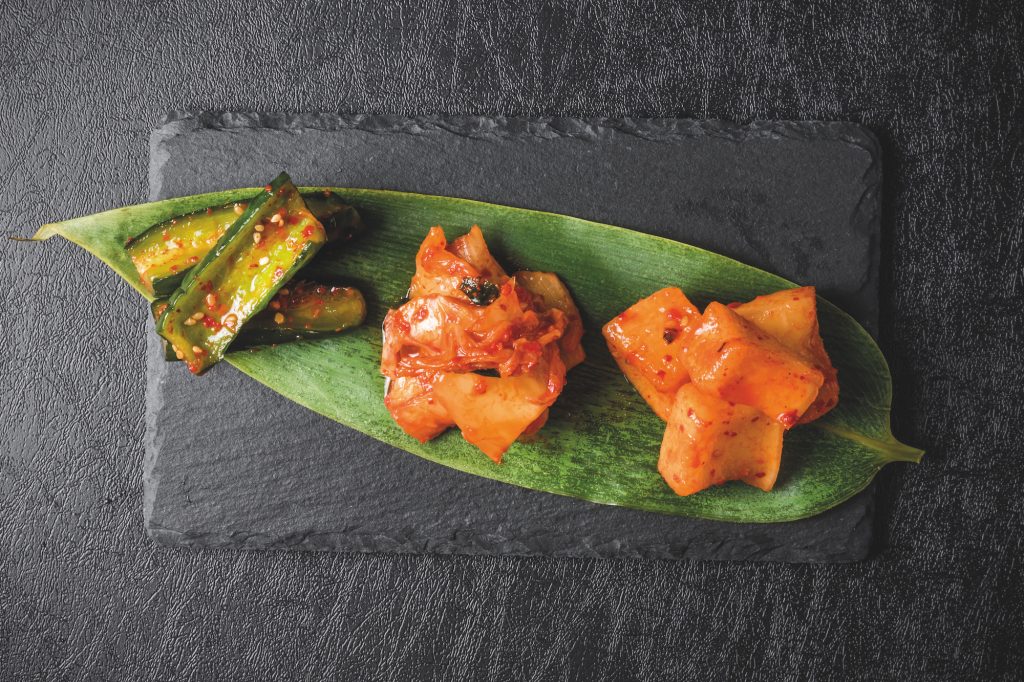Gut Health
Gut health: what are the five Ks?
We know that supporting our gut health can keep us strong, sane and slim, and that our diet is the best way to do this, but what are the five ks?
You may have heard them mentioned before, and increasing attention is being put on the five Ks. These fermented foods help to boost your gut health.
With the help of health guru Ursel Barnes, we’ve compiled the five Ks of fermented food that are great for your gut.
The five Ks: Kefir

Traditional kefir is made by fermenting cows milk with grains of bacteria and yeast. The finished product has a slightly sour taste and a bit of a fizz to it from the fermenting process.
Given the right conditions, the bacteria will multiply in the milk. It feeds on the its sugars, meaning the sugar content of fermented milk is actually lower.
Kefir’s probiotic content can help aid digestion and alleviate symptoms of irritable bowel syndrome as it diversifies your gut bacteria. Liz’s recipe for making kefir at home is an easy way to make it and save the pennies.
Water kefir uses slightly different strains of microorganisms added to water. It won’t contain as much protein or calcium as kefir made from milk, but it can be a great alternative if you’re following a dairy-free diet.
The five Ks: Kraut

Kraut originally comes from Germany and is usually made with fermented cabbage, white or red. The fermentation process produces lots of good bacteria bacteria, ready for us to eat.
Fermented foods like sauerkraut reduce inflammation and problems with digestion. Good bacteria in our gut can even help to aid those with chronic digestive issues, such as Crohn’s disease and ulcerative colitis.
Sauerkraut also contains enzymes that help our bodies to break food down food. Smaller bits of food are more digestible and so help the body to absorb more nutrients
Try this easy-to-make spring greens sauerkraut recipe for a fresh-tasting alternative.
The five Ks: Kimchi

Kimchi is a Korean dish that’s low in fat and high in fibre. It’s ideal for improving our gut health.
Like kraut, kimchi is made with cabbage. Add salt, vinegar, garlic, chilli peppers and other spices for the finished product.
Kimchi is low in carbohydrate and high in fibre. It also contains a raft of probiotics, namely ones belonging to the Lactobacillus group, which are good for digestion.
By encouraging more antibodies in our blood, the fermented superfood can help us ward off illness too. It’s also high in folates, which are great for the body, especially during pregnancy.
The five Ks: Kamut Sourdough

Calling sourdough kamut means the bread is made from ancient grains and fermented.
The dough is full of prebiotic fibre that can help fertilise and feed the healthy bacteria in the gut. The process even mitigates the gluten allergens in the bread. It’s much more gentle for the gluten intolerant among us.
Kamut sourdough can help with digestion so make the swap from ordinary bread for a more gut-friendly alternative.
Try our recipe here for a sourdough starter.
The five Ks: Kombucha

Mildly fizzy and slightly sour, Kombucha is made when a ‘scoby’ (which stands for ‘symbiotic culture of bacteria and yeasts’) is added to a sweetened tea and left to ferment.
Like in kefir, the microorganisms feed off the sweet content, meaning it’s a great alternative to sugary drinks. Tea is full of free-radical-fighting antioxidants, and the yeast breaks down the sugars in the fermentation process.
The fermentation process also produces modest amounts of vitamins C, B, and B12. It’s an easy way to boost your immune system and keep you protected and energised.
Liz has a simple recipe for making your own delicious kombucha here.
Find out more
You can hear more about this on Liz’s podcast with super-fermenter Ursel Barnes, where the talk all things gut friendly.




